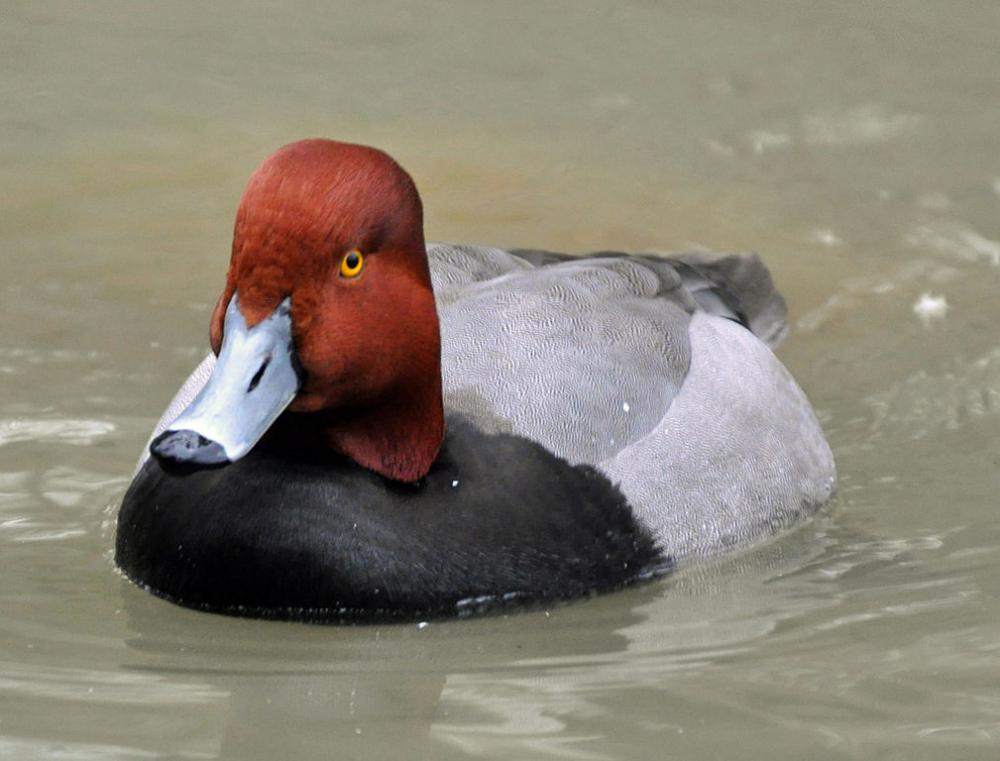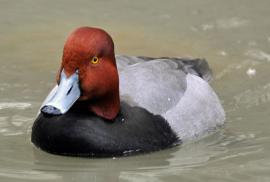Guide to Boreal Birds
Overview
Redheads do most of their feeding at night, spending the daylight hours resting on water. Formerly more abundant, this diving duck has declined greatly because of the twin pressures of hunting and habitat destruction. In many areas the introduction of carp from Eurasia has caused the destruction of its aquatic food plants. There are now said to be about 600,000 Redheads left in North America.
Description
18-22" (46-56 cm). Male gray, with brick-red head and black breast. Female duller and browner, with light area around base of bill; has larger and rounder head than female Ring-necked Duck. Both sexes have pale gray wing stripe and pale blue-gray bill. Similar Canvasback has whiter body and sloping forehead and bill.
Voice
Like the meow of a cat; also quacks.
Nesting
10-16 buff eggs in a woven cup of reeds lined with white down and attached to marsh vegetation.
Habitat
Nests in marshes but at other times is found on open lakes and bays; often on salt water in winter.
Range/Migration
Breeds from Alaska and British Columbia east to Minnesota and south to California and Colorado. Winters in southern half of United States, Mississippi Valley, and Great Lakes region.



